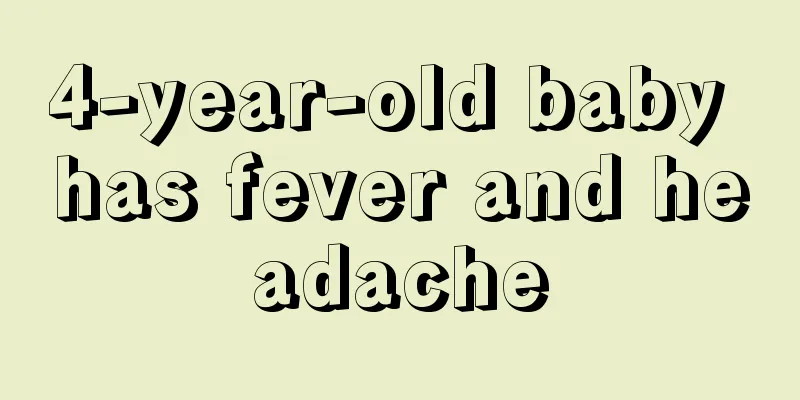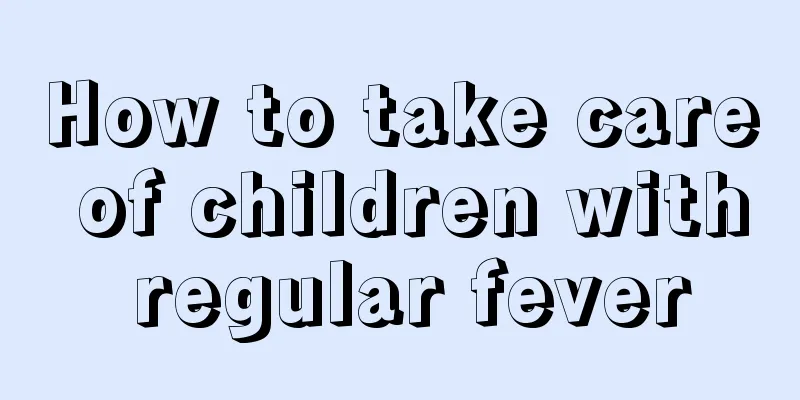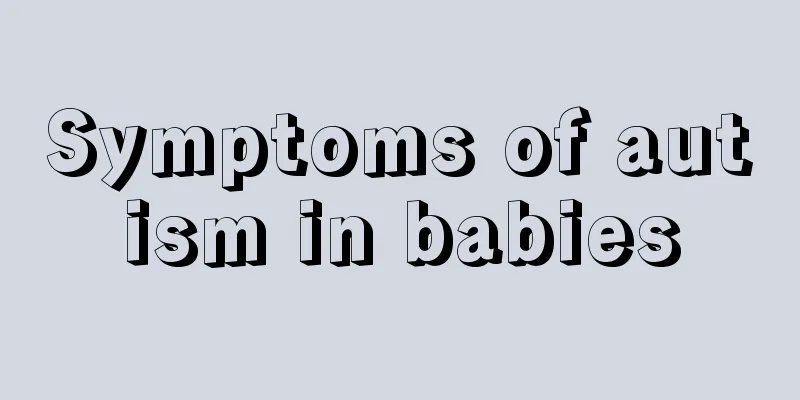What are the effects of general anesthesia on children?

|
If a child needs to undergo general anesthesia, parents must be very worried. Therefore, it is very necessary for these parents to understand the impact of general anesthesia on children. So what are the effects of general anesthesia on children? Next, this article will introduce the effects of general anesthesia on children for your reference only. Friends who want to know more about this can take a look. What are the effects of general anesthesia on children? The effects of general anesthesia on children are as follows: 1. Reflux, aspiration, and aspiration pneumonia Vomiting or regurgitation under anesthesia may lead to serious consequences, such as aspiration of gastric contents, which may cause acute airway obstruction and other serious lung complications. It is currently one of the important causes of death in patients under general anesthesia. The extent of acute lung injury caused by aspiration in patients is directly related to the physical and chemical properties (such as pH, fat fragments and their size) and volume of the aspirated gastric contents, as well as bacterial contamination. 2. Restlessness During the recovery period of general anesthesia, most patients are drowsy, quiet, or have mild disorientation, and their brain functions gradually return to normal. However, some patients still experience greater emotional fluctuations, manifested as uncontrollable crying and irritability (restlessness). In addition to being related to preoperative and intraoperative medication, postoperative pain may also be an important factor causing agitation. 3. Delayed awakening after general anesthesia After general anesthesia is stopped, the patient usually wakes up within 60 to 90 minutes, and the command movement, orientation ability and preoperative memory are restored. If the patient is still not fully conscious after this time limit, it can be considered that the patient is experiencing delayed recovery from general anesthesia. Common causes of delayed awakening after general anesthesia include prolonged drug action, advanced age, systemic metabolic diseases, and central nervous system damage. 4. Postoperative nausea and vomiting Postoperative nausea and vomiting are very common problems after general anesthesia, causing discomfort to patients and affecting their rest. The incidence rate is 20% to 30%. The incidence rate is relatively high in patients with relevant medical history, females and those receiving inhalation anesthesia. 5. Bronchospasm Acute bronchospasm may occur during anesthesia and after surgery, and is characterized by spasmodic contraction of bronchial smooth muscles, airway narrowing, a sudden increase in airway resistance, expiratory dyspnea, and severe hypoxia and CO2 accumulation. If it is not relieved immediately, the patient will not be able to ventilate effectively, which will not only cause hemodynamic changes but even arrhythmia and cardiac arrest. 6. Hypoxemia and hypoventilation Respiratory complications are still one of the main reasons for delaying postoperative recovery and threatening patients' lives after general anesthesia. The most common cause of airway obstruction after general anesthesia is pharyngeal obstruction due to the tongue falling back due to the failure to fully recover consciousness; laryngeal obstruction can be caused by laryngeal spasm or direct airway injury. 7. Acute atelectasis Acute atelectasis refers to the sudden collapse of a lung segment, lobe or one side of the lung, resulting in loss of ventilation function. Acute atelectasis is one of the serious complications after surgery, especially after general anesthesia. Large-area acute atelectasis may cause insufficient compensation of respiratory function, resulting in the patient's death from severe hypoxia. 8. Hypertension During the recovery period of general anesthesia, hypertension is very likely to occur due to the wearing off of the effects of anesthetics, pain and discomfort, as well as stimulation from suctioning sputum and removal of the endotracheal tube. The above is an introduction to the effects of general anesthesia on children. I believe that after reading the above introduction, you already know the effects of general anesthesia on children. From the above introduction, we can see that general anesthesia has more impact on children. Therefore, parents and friends should be mentally prepared! |
<<: What are the dangers of excessive foreskin in children?
>>: What is the normal height for a two year old?
Recommend
Symptoms of a cold in a baby over 1 month old
Parents will be very worried if their baby catche...
Things to note during the growth and development period of girls
Most girls grow and develop during the junior hig...
What medicine should babies take for intestinal infection
Children's intestines are the most vulnerable...
How long did it take for the child to start talking?
Language is a unique behavioral characteristic of...
Children have sore throats. Do you know how to treat them?
When symptoms of sore throat appear in children, ...
Baby's face has coffee spots
In our lives, many people often have spots on the...
Four things that babies need when using air conditioning in summer
In the hot summer, parents are very worried about...
Will children get angry if they drink pure milk?
For a child, parents pay attention to him all the...
Who determines a child's IQ?
Parents all have high expectations for their chil...
Massage techniques for jaundice in children
When the bilirubin in human serum rises abnormall...
How to change milk powder for a 2-year-old baby
Nowadays, many mothers feed their babies with mil...
What to do if children have tooth decay pain
Tooth decay pain is quite common in children. In ...
What's the matter with blood in baby's stool?
If there is blood in the baby's stool, it may...
What are the characteristics of early development in children?
Under normal circumstances, a person's develo...
What to do if your child has tooth decay
No one can ignore the important role that teeth p...









